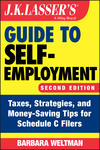Creating a Roth IRA from Your 401(k)
If you participate in a 401(k), 403(b), or 457 plan and leave your employer, you have a unique opportunity to profoundly impact your future retirement income. Instead of leaving the funds in the plan or rolling them over to a traditional IRA, both of which continue to create taxable income on future withdrawals, consider transferring them to a Roth IRA. This will allow all future earnings to build up completely tax free.
Roth IRA rollover
Before the Pension Protection Act of 2008, someone who wanted to create a Roth IRA from 401(k) plan funds had to first roll over the account into a traditional IRA and then convert that IRA to a Roth IRA. Now, a direct conversion is allowed, if you are eligible to do so. According to recent IRS guidance, plans must allow for transfers to Roth IRAs.
Eligibility. To make a direct conversion from a 401(k) or other similar plan, you must meet the same eligibility rule for converting from a traditional IRA to a Roth IRA. Your modified adjusted gross income (MAGI) cannot exceed $100,000, whether you are single or married; you cannot convert if you are married and file a separate return (the MAGI limit does not apply after 2009). It’s up to you, not the plan administrator, to determine whether you’re eligible to make the conversion.
Note: Beneficiaries of 401(k) and similar plans can also make these rollover contributions to Roth IRAs. (Plans are allowed but not required to permit rollovers by non-spouse beneficiaries; they must allow rollovers by surviving spouses). The MAGI and filing status of the beneficiary determines his or her eligibility.
Making the conversion. This can be done in one of two ways:
1.
Flexible spending arrangement
A salary reduction plan that allows employees to pay for enhanced medical coverage or dependent care expenses on a tax-free basis.



